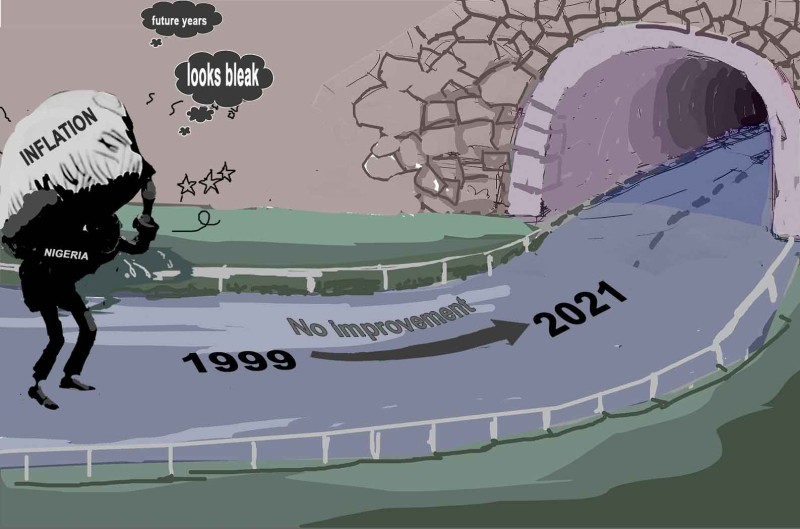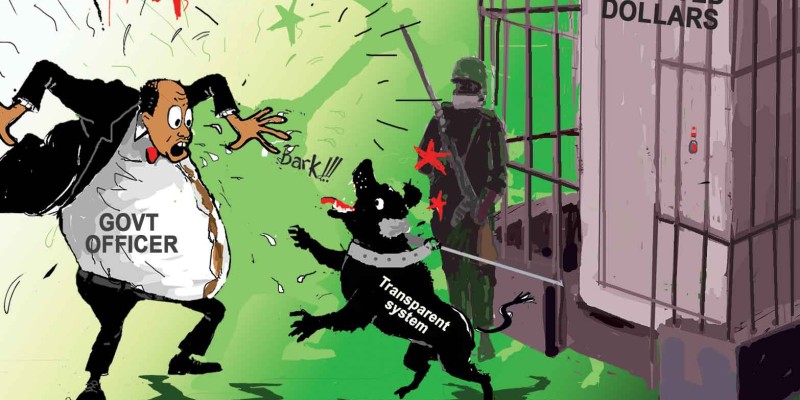MARKET LAW FOR JOB CREATION IN NIGERIA
By: Peter Alexander Egom, first published in February 2012
INTRO:
Last week, this column republished ‘Additional Dividends of a Liberalised Foreign Exchange Market’. The article discussed the economic advantages that could arise from adopting a liberalized foreign exchange system, it can be found using the link below.
(See www.betternaijanow.com for this series and more articles by the Late Sir Henry Boyo)
Today’s republication was written by a guest columnist of repute who hammers on ideas that this column has presented over time. The author elaborates on issues related to rising unemployment levels in Nigeria, by providing a background and sound analysis to shed light on our nation’s economic situation which has progressively worsened. The article also discusses the resource curse and addresses the mismanagement of the economy by Nigeria’s leaders,due in part to unhelpful guidance from external bodies that have only served to plunge Nigeria deeper into poverty.
As you read through the below article taking note of previous events or rates, keep in mind its year of publication (2012), a clear indication that Nigeria’s economic situation is yet to improve even after all this time.
Peter Alexander Egom is our Guest Columnist this week. By way of introduction, perhaps it may be more appropriate if I let our Guest Columnist speak for himself! The following paragraph is an excerpt of Egom’s profile from a “professionals’ social media network”.
“I am a Christian Economic Theologian/Evangelist. I search the Books of the Holy Bible for the market ways and market laws of God Almighty. For this purpose, I use Adione Institute for Justice & Peace, AIJP, as my corporate vehicle for my hands-on economic and market evangelical work. AIJP develops and manages level-ground markets for currencies, capital and commodities within and between the emerging full reserve nations of the globe. Thus, with AIJP, I use God-compliant currency, financial and industrial market principles and practices to transform current global economy of market hierarchy, injustice, chaos and war into the emergent and millennial global economy of market level-ground, justice, order and peace”.
Egom is also a prolific author, and the following summaries represent some of his publications:‘Global Joseph Project’, which explains that as we factor God Almighty into global economic cause and effect, so do we become aware of three economic truths about the past, present and future conditions and circumstances of any market economy of the globe. In his book,‘Economic Mind of God’, the author affirms that God, in Christian belief, is One in Essence but a Trinity of Persons and Activities: God the Father, the Creator; God the Son, the Redeemer and; God the Holy Spirit, the Sanctifier. He
believes that any modern economy is a money-flow structure of three interdependent markets viz; the currency market where an economy’s means of trade and payments is created and managed; then, the financial market where an economy’s sources and uses of savings are managed and lastly, the industrial market where an economy’s means of trade and payments is used to distribute work and its social and material rewards among the people of an economy.
In ‘Economics of Justice & Peace’, the author also insists that the Bible contains a prophetic and evolutionary three-stage economic story from creation to the end of time and that one can decode this evolutionary economic story of the Bible simply by detecting, from Book to Book, the particular unit of social or economic measurement, which the Bible either spoke for or against over the stretches of biblical time.
In ‘Christian Society Before & After Parousia’, Egom wrote on the economics of the end-times. He observes that Jesus Christ died and resurrected from death for one single economic purpose; that is, to transit the global economy from its current linkage to Mammon’s payments regime of the gold exchange debt standard to its emerging linkage to God’s payments regime of the gold standard via the vehicle of his Global Joseph Project.
Egom’s educational portfolio includes Master’s Degree in Anthropology and National Economy from Cambridge University and further Post Graduate laurels from Aarhus University, Sweden; he is currently Chairman, Board of Trustees at Adione Institute of Justice & Peace, and Consultant Publisher at the Nigerian Institute of International Affairs.
So, armed with the awesome credentials of Peter Egom, let us now proceed to evaluate his comments on the “Market Law for Job Creation in Nigeria”. Please read on.
“Chaos and the inability to focus on job creation at home have continued to be the indices of economic management practice in Nigeria since September 26 1986. For, on that day, Nigeria succumbed to the economic sabotage of the World Bank by making the interest-based import parity pricing theorem, and, hence, the neo-colonial currency market policy of the ceaseless devaluation of the non-convertible naira, the cornerstone of her economic policy. And, ever since, the neo-colonial market forces of financial deregulation have reduced Nigeria to a miserable shamble of industrial dis-articulation, joblessness and social anomie.
“The import parity-pricing theorem is the market law of one price, which says that the prices of internationally traded goods, like petroleum products, for example, should be the same in the technologically backward and non-convertible currency- Nigeria, as they are in the technologically advanced and convertible currency- Britain. This pricing norm automatically removes any infant-industry fiscal protection from Nigeria vis-à-vis Britain as it entrenches the de-industrializing fiscal regime of the periodic removal of spurious and cooked-up subsidies from the Nigerian pump prices for petroleum products, for example. And, the, thus ensuing, constant shredding of the internal and external market values of the non-convertible naira makes it impossible for the outward-looking and technologically backward Nigerian economy to use the naira to produce much of what Nigeria consumes and to, thereby, create jobs aplenty in Nigeria. Rather, the ever-depreciating naira diverts job-creation and over-all value adding from Nigeria to the industrial protégés of the West like India, Brazil, and China. Therefore, let us all be clear on the source of joblessness in Nigeria. The culprit is the World Bank’s market law of one price at work in Nigeria.
“So, when economic wiseacres from the West like Paul Collier and Jeremy Sachs come to try to confuse us in Nigeria on matters of currency market policy by telling us the long story that a mysterious phenomenon, which is known as resource curse, is responsible for malignant industrial disarticulation and joblessness in the otherwise resource-rich Nigeria, we Nigerians should never allow them to get away with this neo-colonial economic mumbo-jumbo. We should roundly tell them to “go siddon” because they are either being economical with the truth or they simply do not know that the phenomenon of resource curse is the same as the World Bank’s interest-based import parity pricing theorem at work in the non-convertible currency Nigeria or anywhere else in the non-convertible currency world.
“In effect, there is no mystery whatever about the phenomenon of resource curse. When a nation like Nigeria finds it impossible to put her enormous endowment of natural resources to bubbling local-value-adding and job creation use, we do not have to look too far for what the cause of this is. What is at play is no more and no less than the imperial and interest-based market law of one price which Nigeria adopted on September 26, 1986 under the demonstrable neo-colonial mis-advice of the Ishrat Hussains, Paul Colliers and Jeremy Sachses of the World Bank. This market law of one price imposes a steep imperial tax on any good produced in Nigeria so that Nigeria never manages to produce much of what she consumes but must depend on the external world for her consumption needs. This is why this law of one price is the same as the pricing law of the colonial currency board system so that what the World Bank denotes as a price subsidy from the external perspective is the same as an imperial tax of the currency board system from the Nigerian perspective.
“Besides, economics has long recognized that there are two phenomena which keep open and non-convertible currency nations like Nigeria in the numbing shackles of low domestic value-adding and joblessness. The one is the domestic dual economy syndrome which generates the Lemming rush of men, money and materials from their rural areas to their urban areas. And the other phenomenon is the external centre-periphery syndrome which generates the Lemming rush of men, money and materials from these nations to the convertible currency nations of the West. What then is at the root cause of the rural-urban drift of resources and the external resource flight and drain in say Nigeria? Nothing more and nothing less than the imperial market law of one price! So the Colliers and the Sachses of the World Bank should hide their heads in shame for not being in intellectual lockstep with this imperial pricing norm that is truly responsible for the nature and cause of the poverty of the many non-convertible currency nations like Nigeria
“It, thus, follows from this that the resource control militancy in the Niger Delta was a most logical and patriotic response by Niger Deltans to the domestic industrial ravages which the World Bank economic diktat of capital and job export has brought to Nigeria since September 26, 1986. And, now, add this to the social tinderbox of the decades upon decades of the neglect by the rulers of the Northern states, of policies which should keep their peoples in school and at work and it becomes very clear that one form or the other of social revolt would with time emerge in those states to, in the end, become the plague of Nigeria.
So, if the nihilistic Boko Haram is truly a violent response by some people in Northern Nigeria to the prevalent and numbing social and material indigence for the many in Nigeria, then it is not so as Mr. Lamido Sanusi Lamido, Governor of the Nigerian Central Bank, CBN, claimed recently in an interview with the Financial Times of London that the Boko Haram insurgency can be traced, in large measure ,to the extra 13% of the share of the distributable pool of the Federation Account that now goes to the states of the Niger Delta.
Rather, the Boko Haram social revolt owes its origin and currency to a combination of the anti-human-capital-developing economic policies of the rulers of the Northern states and the World Bank’s job and capital exporting market law of one price. And it is, indeed, ironical that the institutional executor of the World Bank’s anti-Nigeria forex management policy is Mr. Sanusi’s CBN!
“And this is the point which the intrepid Mr. Henry Boyo makes every so often in regard to the CBN’s naira-depreciating method for managing Nigeria’s external reserves. Mr. Boyo tells us that it is the CBN’s capture of, and monopoly control over, the use of Nigeria’s foreign exchange resources that depreciates the naira, sine die, and is therefore responsible for the prevalent joblessness and industrial dis-articulation in the Nigerian economy. So, if Mr. Boyo is right in what he is saying, and I think he is, then it is the inflationary and naira-depreciating forex management style of Sanusi’s CBN that is considerably responsible for the country-wide social and material apartheid in Nigeria which Boko Haram is up in violent and mindless arms against! For, Boko Haram tells us that there is no point in being educated up to the hilt when this education does not give one any work to do or put food on one’s table. So, to the extent that Sanusi’s forex management template is job and capital exporting, to that extent is Sanusi’s market law of one price the origin and sustaining force of the Boko Haram insurgency, of the Niger Delta insurgency and of everything that is materially and socially amiss in Nigeria. That is it!”
SAVE THE NAIRA, SAVE NIGERIANS!









